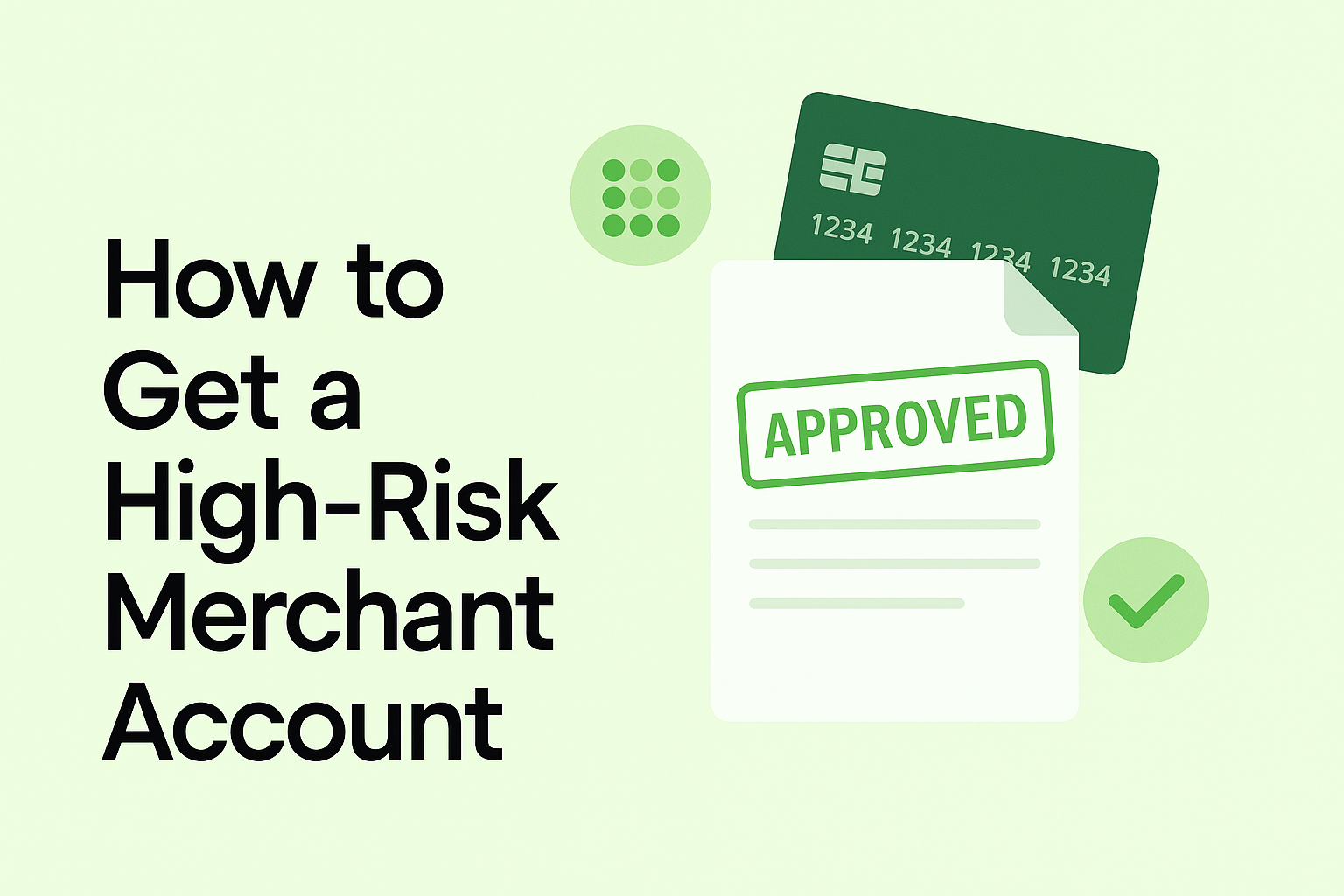Est.2016
Why Traditional Payment Processors Reject High-Risk Businesses (And How to Get Approved Anyway)

June 16, 2025
Introduction
Many legitimate businesses in industries like CBD, adult content, firearms, and online dating find themselves unexpectedly shut out of payment processing platforms such as Stripe, PayPal, or Square.
Despite operating legally and ethically, these businesses are often classified as high-risk. But what does that actually mean, and how can merchants still find reliable ways to accept credit card payments?
In this article, we’ll explore:
- What makes a business “high-risk”
- Why traditional processors avoid these industries
- What steps high-risk merchants can take to get approved
- Long-term strategies for stable, secure payment processing
What Is a High-Risk Business?
“High-risk” is a label used by banks and payment processors to describe merchants that pose a higher-than-average financial, legal, or reputational risk. This classification is based on several criteria, including:
- Chargeback frequency
- Industry regulations
- Sales models (e.g., recurring billing, digital products)
- Product type or content concerns
While being labeled as high-risk doesn’t reflect the legitimacy of your business, it can have real consequences on your ability to get approved for credit card processing.
Common Industries Considered High-Risk
- CBD & Hemp Products
Due to regulatory ambiguity between federal and state laws. - Adult Entertainment
Content concerns, high chargebacks, and reputational risk for banks. - Online Dating Services
Subscription models and fraud risks raise red flags. - Firearms & Ammunition Sales
Strict compliance requirements make this sector risky. - Smoke & Vape Shops
Regulatory concerns and underage use risks. - Travel & Ticketing Platforms
High average ticket prices and frequent cancellations.
Why Traditional Payment Processors Decline High-Risk Merchants
Most mainstream processors use automated risk assessment systems that flag and reject applications that fall outside predefined parameters. Here’s why:
1. Chargebacks and Fraud
High-risk industries tend to experience more disputes and refund requests. Excessive chargebacks cost processors money and damage their relationships with banks.
2. Reputational Risk
Processors like Stripe and PayPal need to maintain partnerships with banks and card networks. Hosting controversial industries can put those partnerships at risk.
3. Regulatory Complexity
Industries like CBD and firearms require deep compliance knowledge. Most generic platforms aren’t built to handle it.
4. Subscription Models
Recurring billing increases the likelihood of disputes, especially if cancellation processes are unclear.
What You Can Do If You’ve Been Rejected
If you’ve been declined or terminated by a mainstream processor, you have options. Here’s what you can do next:
✅ 1. Work With a High-Risk Specialist
Seek out payment processors that specialize in high-risk industries. These providers work with banks willing to support regulated and complex businesses.
✅ 2. Review and Improve Your Website
Make sure your website includes:
- Full product/service descriptions
- Clear refund and privacy policies
- Contact information
- SSL encryption
Many applications are declined simply because the website lacks compliance elements.
✅ 3. Gather the Right Documentation
Be ready to provide:
- Business license or entity registration
- Government-issued ID
- Voided check or bank letter
- A recent processing statement (if switching providers)
What to Look for in a High-Risk Processor
Not all high-risk processors are created equal. Here are features to prioritize:
- Transparent, upfront pricing
- Fast approval timelines (1–3 business days)
- Support for your industry niche
- Dispute/chargeback management tools
- Integration with your ecommerce platform
1 Comments On “Why Traditional Payment Processors Reject High-Risk Businesses (And How to Get Approved Anyway)”


Hi, this is a comment.
To get started with moderating, editing, and deleting comments, please visit the Comments screen in the dashboard.
Commenter avatars come from Gravatar.